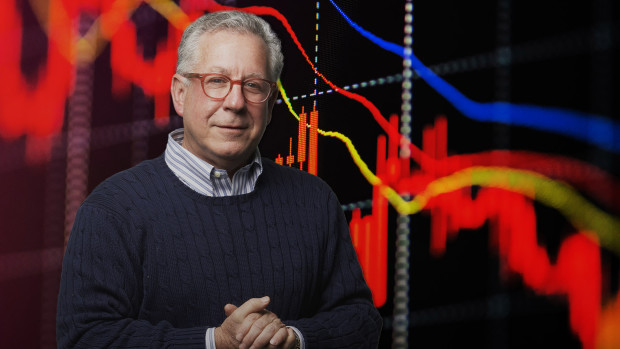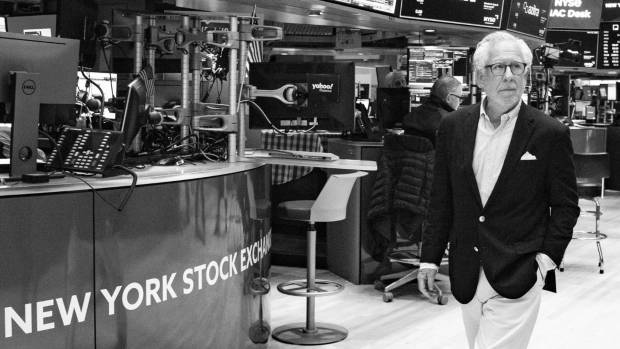
Many thought hedge fund manager Doug Kass was dead wrong when he said in December that stocks could rally in the first half of 2023. The stock market was only beginning to emerge from a brutal bear market, and recessionary risk was front and center on everyone's mind.
Yet, stocks tend to frustrate the masses, and at the time, most were bearish, laying the groundwork for this year's better-than-expected returns.
The S&P 500 has marched 15% higher in 2023, but Kass isn't resting on his laurels. He recently detailed his latest take on what's likely to happen for the stock market in his Real Money Pro daily trading diary.
What he said should make investors nervous.

Credit: Abby Nicolas
Is the stock market priced to perfection?
Kass has been navigating the stock market professionally since the 1970s. To say he's seen a thing or two may be a big understatement. His career was launched when inflation and interest rates were rocketing, making him one of the few Wall Street pros regularly sharing his thoughts with a record that includes navigating stocks in a rising rate environment.
His experience could come in handy.
DON'T MISS: Warren Buffett just bought these stocks
Treasury yields decreased since the early 1980s, resulting in post-Great Recession zero-interest rate policies (ZIRP) that supported risk assets like stocks through early 2022. Since then, the Fed's attempt to lower inflation has caused yields to surge, breaking them out of their multi-decade downtrend.
According to Kass, that's a problem because many businesses and investors made decisions assuming rates would stay low. Those choices could come home to roost.
“The wrong-footed decisions of the last decade, or more, made by corporations, banks, and the Federal Reserve — who discarded centuries of history by dwelling only on the last 15 years — based on the notion of permanently low inflation/rates, are now haunting them and exposing a credit and economic vulnerability that has yet to be fully seen,” wrote Kass in his trading diary.
We got an inkling of the trouble caused by higher rates when Silicon Valley Bank and others failed earlier this year. Their balance sheets had become bloated with low-yielding Treasuries that were no longer as valuable, given higher rate alternatives.
More From Wall Street Analysts
- An analyst that correctly called the bull market in stocks offers a warning many investors won't like
- Analyst who has owned Nvidia stock all year has this to say ahead of earnings
- Here's what Wall Street analyst Tom Lee thinks could spark a stock market rally
Other problems are emerging elsewhere. For example, many commercial borrowers relied on low variable rate loans to get deals done over the past few years. Many of those loans will have to be refinanced at much higher rates. Unfortunately, office buildings aren't worth as much because of work-from-home trends.
“Equity investors have materially ignored the emerging credit quality issues — especially in commercial real estate — and the imminent Loan Maturity Cliff as corporations, with variable rate debt obligations, face a more than doubling in debt service payments, and at a time in which their collateral is reduced in value,” said Kass.
For many commercial borrowers, defaulting on loans will be the best financial decision. Consumers may run into similar trouble, especially if unemployment rises.
We've already seen upticks in credit card delinquency rates. That trend will likely continue with consumers owing record amounts and interest rates over 20%, particularly if inflation remains sticky.
“Though the recent year-over-year improvement is welcome...two-year stacked inflation is daunting. Given that the CPI was unchanged in July 2022, it is likely that the CPI print will be higher next month,” writes Kass.
It doesn't help that gasoline prices have surged this summer, increasing the need for lower prices elsewhere if we hope to reach the Federal Reserve's 2% inflation target. If inflation doesn't continue falling, the Fed must keep rates higher than many hope.
That is bad news for stocks. The 10-year Treasury yield has risen to 4.2%, its highest since last October. That makes Treasuries an increasingly competitive alternative to owning stocks.
Higher yields also mean stocks are priced to perfection.
“The relationship between stock prices, earnings, and interest rates is particularly important as the equity risk premium is the foundation of stock prices, and rates and profits are the anchor of discounted cash models. The equity risk premium clearly signals that credit is more attractive than equities and that stocks are overvalued,” writes Kass.
The S&P 500's price-to-earnings ratio was just 15 when stocks bottomed last fall. Now it's above 19, according to FactSet. Historically, returns are harder to come by when P/E ratios are this high.
The combination of credit risk, stubborn inflation, and arguably rich stock market valuation makes for an unfriendly recipe for the rest of the year.
"I believe there is a growing possibility that the S&P Index has already hit a high for 2023," concludes Kass. "A market decline may already have commenced and that, in the months ahead, the U.S. stock market may become far less forgiving, providing us with an opportunity to expand our long book at attractive prices."
Unlock the ins and outs of the trading floor with Doug Kass’s Daily Diary. Learn more







